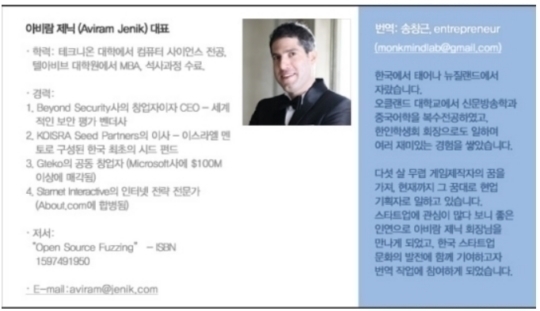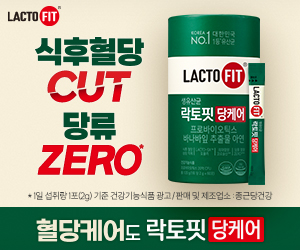이 실험의 첫 시도에서 참가자들은 절대로 그 어떤 문도 닫지않는 모습을 보입니다. 납득할만한 행동이죠. 가능한 옵션들을 굳이 버릴 필요가 있나요? 그런데 그 후부터는 게임의 규칙을 바꾸어 열려있는 문에 대해 패널티를 적용해보았습니다. 허나 참가자들은 그럼에도 그 어떤 문도 닫지 않는 방법을 택함으로서, 패널티를 받고 더 적은 점수를 받게 되었구요.
그 다음으로는 규칙을 또 다시 바꾸어, 어떤 문이 사용되지 않을 경우 이를 자동으로 닫히게 만들었습니다. 그러자 놀랍게도, 참가자들은 이동하다가도 다시 문으로 돌아와 이를 열어두려는 모습을 보이게 됩니다. 앞에 보이는 길로 나아가는 대신에 말이죠. 우리의 삶과 놀랍도록 닮아있는 모습입니다. 실제로 우리는 삶 속의 많은 가능성(옵션)들을 열어두려고 하지요. 더 많은 길이 열려있을수록 더 안전하게 느끼기 때문입니다.
그런데 이렇게 가능성을 열어두는 것에는 어떤 비용이 소모됩니다. 개인적인 레벨에서는 돈이 들겠구요, 비즈니스적인 시각에서는 이보다도 더 많은 비용이 들기 마련이죠. 그리고 스타트업의 경우라면, 이렇게 가능성을 많이 열어두려는 것만으로도 큰 실패를 겪게될 수 있게 되어버립니다.
샘 젤(Sam Zell)은 스타트업 투자를 통해 엄청난 성공을 거둔 투자자입니다. 그는 이스라엘의 유명 대학에 아주 특별한 기업가 프로그램을 만든 사람으로도 알려져있지요. 누군가 그에게 그의 성공비결을 묻자, 그의 대답은 이랬습니다. "나는 서방 세계에서 가장 빨리 NO를 말할 수 있는 사람이기 때문이다". 가능성의 문들을 빠르게 닫아버림으로써, 중요한 길만을 선택하여 집중할 수 있었다는 의미입니다. 앞에 놓여진 많은 가능성의 길들 사이에서 밸런스를 맞추려하기보단, 하나의 길만을 남겨두고 나머지 모든 길들은 빠르게 차단시켜버린 셈이죠.
아마 당신도 많은 가능성으로부터 자신을 벗어나게끔 만들고 있다 생각할지 모르지만, 실상은 그렇지 않을 수도 있습니다. 가령 어떤 투자자와 이야기 중일 때 이들과 1~2주 정도를 연락하지 않은 상태라면, 이 말인즉 기회는 이미 없어졌거나 거의 없어지기 직전이라 볼 수 있습니다. 함께 일하는 파트너와 더 이상 전진하고 있지 않다면, 그 관계가 계속 지속되고 있다 스스로를 속이는 꼴 밖에 되지 않습니다. 제품의 방향성에 대해 결정을 내리지 못하고 두 개의 가능성을 모두 살려두고자 한다면, 그 어느 가능성에 대해서도 성공할 수 없는 어중간한 제품만이 탄생할 것입니다.
이 말을 달리해보자면, 그 가능성의 문이라는 것은 실상이 아닌, 단지 여러분의 마음 속에서나 열려있는 것이란 의미입니다. 정말로 필요한 가능성의 길을 열어둠으로써 얻는 이익을 포기하면서까지 하나라도 더 가능성의 갈래를 늘려보려고 하는 식이죠. 굳이 그렇게까지 해야하는걸까요? 이럴 때는 그냥 다른 가능성들은 죄다 닫고 하나의 길만을 골라 앞으로 나아가시길 바랍니다.
무언가를 정리한다는 것에는 수많은 이점이 있습니다. 노이즈를 줄이고, 한 방향으로만 집중하게끔 만들어주며, 이로서 당신의 앞에 놓인 현실적인 선택이 무엇인지를 보여줍니다. 정리를 효과적으로 하고자한다면, 먼저 스스로부터 가능성들의 문을 닫으십시오. 가능성들로 하여금 먼저 저절로 닫히게는 하지 마시구요. 그렇다고 앞서 말씀드린 샘 젤씨만큼 빠르게 NO를 외칠 필요까지는 없다지만, 최소한 어떤 방향의 길로는 가지 않아야겠다며 빠르게 결정하는 것에는 큰 의미가 있답니다. 앞으로 나아가신다면, 그 결정을 확실하게 관철하십시오. 그 곳에 `어쩌면`이라던가 `언제가 다시`라는 단어가 붙지 않도록요.
이 글을 읽고 계신 당신이 만약 한국에서 스타트업을 하고 있고 글로벌 진출에 관해 도움을 받고 싶으시다면, 제가 바로 여기에 있답니다! 이 글을 개인적인 초대장이라 여기시고 연락을 주셔도 좋습니다. 저는 페이스북도 하고, 트위터(@aviramj)도 하며, 이메일 주소는 aviram@jenik.com 입니다. 제가 어떻게 도와드리면 좋을 지 알려주세요!
===
The art of the close
In a famous behavioral psychology experiment, the participants play a game where you need to go through open doors. Going through the doors allows you to discover paths, but closing the door would be permanent: you can never again open the door and that path is gone forever.
On the first iteration of the experiment, the participants never closed any doors. That makes sense - why not leave all the options open? But in later versions of the game, the rules changed to incur a penalty for doors being left open. The participants chose to pay the penalty and score lower, and just not close any doors.
Then, the experiment changed further, to have doors automatically close after some time when they are not used. Amazingly, the participants in the experiments went back to the doors just to keep them open; they wasted their time running around the maze maintaining the doors open, instead of walking through the path.
This experiment surprisingly emulates life. In life, we like to keep our options open; the more possible paths we have, the more secure we feel. But open options incur a cost: on a personal level, having to keep so many doors open takes a toll. On a business level this cost is even higher. When it comes to running a startup, trying to keep lots of options open may lead to a catastrophe.
Sam Zell is a very successful investor with a remarkable success in startup investing. He is the creator of a unique entrepreneur program in a large university in Israel. When asked about his secret, Zell said: "I`m the fastest NO in the west". Sam Zell closes doors quickly, so that he can focus on the important path. Rather than try to balance many potential directions forward, he focuses on one, and closes all other paths quickly.
In most cases, you may think you`re leaving your options open but you really are not. If you are talking to investors and you haven`t been in touch with them for a week or two, the chances are probably dead (or about to be). If you are not moving forward with a partner, you`re fooling yourself that the relationship is really there. If you can`t decide on the product direction and want to leave two options open, you will create a mediocre product that won`t really succeed in either direction.
In other words, the door isn`t open in reality, just in your own mind - you bear all the costs of having to maintain one more open door, without even having the benefit of the actual optional path. Why keep it open, then? Just close it and move on.
Wrapping things up has a lot of advantages. Reducing the noise, allowing you to focus, and showing you the realistic choices that are in front of you. To effectively wrap things up, close the doors yourself, rather than letting them shut on their own. You don`t have to be as quick with a "NO" as Sam Zell is, but it`s worth it to decide pro-actively that you won`t pursue a certain path, and let the other side know that`s the case. No "maybe" and no "see you later"; make it final and clear that you are moving on.
If you are a Korean startup that needs help going global, I want to hear from you! Consider this a personal invitation to contact me for help. I`m on Facebook, Twitter (@aviramj) and you can email me at: aviram@jenik.com to tell me how I can help you.
===
- Aviram

관련뉴스















